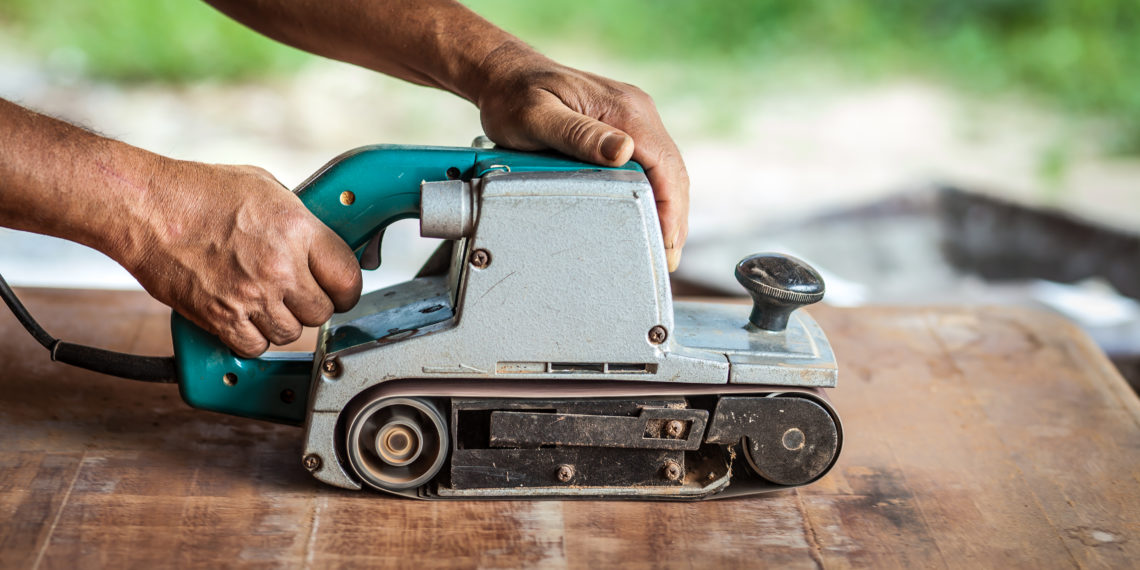People nowadays are very particular about how their homes are designed and what goes into its making. Everyone wants their place to reflect extraordinary beauty along with enhancing its overall life. With time, wood flooring has come up to be a common choice that homeowners prefer owing to the aesthetic and royal feels it offers.

The added advantage of hardwood flooring is that it can go almost everywhere. From the kitchen, bathroom, living room, to bedrooms; you can install them all across the place. However, when it comes to choosing hardwood flooring as an option, a lot needs to be considered. And, for making a sound decision, you need to know the forwards and backward of hardwood flooring. Here’s an ultimate guide into every facet of types of hardwood flooring in order to help you choose better.
1. Solid Hardwood Flooring
There are two types of hardwood flooring options that one can choose from. Solid and engineered are the two types and are similar on the grounds that they are made from the real wood and thus can be referred to as environmentally-friendly. Let’s come to what the solid and engineered imply.
A solid hardwood as the name implies; is a hardwood plank that is made from a single piece of timber. The prevalent advantage of using solid hardwood flooring option accounts for the fact that it can be finished and sanded a number of times when undergoing maintenance. One also needs to know that the moisture control mechanisms are applied during manufacturing to make the planks safe from environmental factors.
2. The Engineered Hardwood Flooring
Then there is the engineered hardwood. This is prepared when two or even more layers of hardwood are amalgamated together to form a single plank. This is a customized plank, thus the name engineered hardwood. The above layer is always of higher quality than the core layers that make the plank. The greatest advantage of engineered hardwoods is that they are less likely to expand or shift due to the environmental pressure.

There are further sub-categories of engineered hardwoods, such as the all-timber, veneer, acrylic-impregnated, and laminate and vinyl floors. One should know that the engineered hard-floors are more popular, owing to the easy installation and dimensional stability.
3. Suitable Installation Locations
Hardwood can be installed almost everywhere. No matter how sunny or dark your particular room is, hardwoods do not lose its shine and burnish in any way. However, you need to be particular about as to where to install the hardwood based on its two types.
Talking of solid hardwood flooring, they can be installed on your first or the floors above. You can go on by installing them in your bathrooms, living rooms, dining rooms, or even the kitchen. The only place where you should avoid installing solid hardwoods is the basement areas.
Engineered hardwoods have become the talk of the town as they can be installed anywhere and everywhere without any restrictions. Be it, your first floor, second floor, or even the basement area, it is thumbs up for engineered hardwoods.
4. The Available Installation Methods
Now that you know about solid and engineered flooring option, let’s switch the conversation over to the various installation methods available. As for the solid hardwoods, the installation options are limited. You can use the “glue-down” method or even the “nails-down” method to install the solid hardwoods.

On the other hand, engineered hardwood has the ball in its court as there are ample installation options available. Be it stapling, glueing-down, click technology, or the new Lock&Fold technology; engineered hardwoods have set a standard for the others to follow.
5. The Durability Test
When it comes to constructing new homes, one opts for investing in materials that would last a lifetime. No one would want to trails and testing at this point in time. This is why analyzing the options well in advance would come in handy.
When it comes to solid hardwoods, one needs to know that it is the best option that is liable to stand the tests of time. As already mentioned, solid hardwoods can be sanded multiple times through the course of its lifetime. However, the durability of solid hardwood flooring depends upon the type of wood that goes into its making. Some are dent resistant, while some are scratch resistant. You need to consult your flooring provider and make your every point clear before investing.

When it comes to engineered hardwood flooring, knowing that it cannot be sanded and finished a lot is necessary. But, when it comes to resisting moisture, dampness, and temperature fluctuations, engineered is the best available option. The layering system protects the wood from every element of nature. No matter what flooring option you choose, look for discount flooring options to create a great value for your money.
6. Differentiating Common Characteristics
Even a smallest of information can matter a lot when choosing the best flooring option for your beautiful home. There are some common characteristics on which we can compare the solid and the engineered.
Starting with solid hardwood flooring, it is most of time site-finished, is available in the form of planks, is thicker when compared to its counterpart, and usually follows a nailing process for its installation. The maximum dimensions of solid hardwood floors are limited to 5”/127mm wide and 7”/2100mm long. Solid hardwoods are also susceptible to gapping, crowning, or cupping.
Looking at engineered hardwood flooring option, it is mostly pre-finished, embraces chamfered edges, and is mostly installed using the glue or the floating technology. The feature that makes engineered hardwood more preferable is its quick installation, and easy maintenance. Engineered hardwoods are also easy to repair and most importantly, they can be used for radiant heating systems, unlike the solid hardwoods.
7. Comparing The Costs
Everything said, the last important thing that you would want to compare would be the cost structure. Solid hardwood is a pure wood! It is a standardized form of wood that comes in various wood types, protective finishes, and warranty specifications. The price depends solely on these factors.
As far as the engineered hardwood flooring is concerned, it comes at a comparatively lesser price than its solid rival. Conversely, the engineered hardwood that has a thicker top layer and includes modern designs can come as a bit pricey. Thus looking for discount flooring options becomes all the more important.

Wrapping Up
Looking at all aspects of solid and engineered hardwood flooring, you would clear on as to which one to choose. Remember that engineered hardwood is for those who like the blend of looks and easy installation. And, solid hardwoods are for people who desire longevity and know and are not looking for modifications down the lane.
















![What to with Scrap Metal? [infographic]?](https://facts-homes.com/wp-content/uploads/2019/07/645413-POPYOV-391-120x86.jpg)






